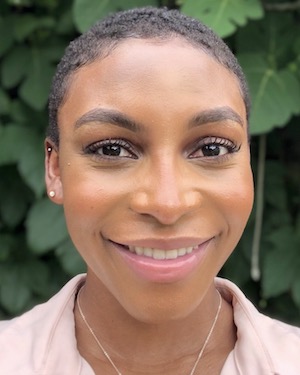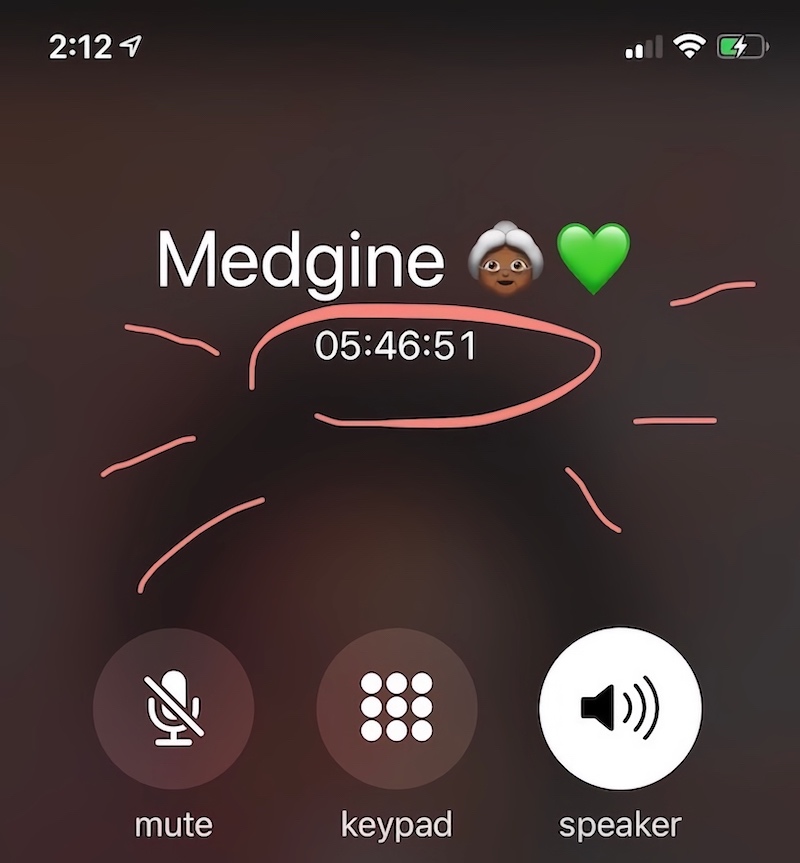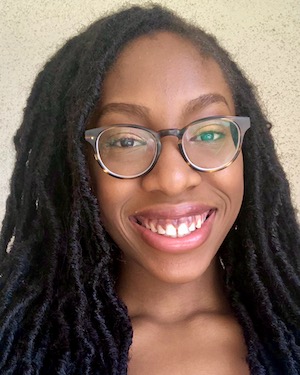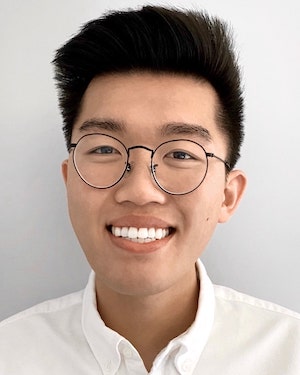Student Blog
Life Hacks

A 30 Minute Phone Call Became 6 Hours ⟩
July 17, 2020, by Lamoni
Life Hacks
Due to my super tight schedule of balancing five classes, a job, research, and sleep (because sleep is my best friend and I am adamant about making time for it!), I do not call my friends as often as I would like. In the past, spontaneous phone calls were an easy and quick way to check in. Now? I pretty much rely on everything being planned on a To-Do list. Once upon a time, spontaneity was fun and refreshing. But now it throws me off schedule and leads to feelings of chaos. None of that, please!
My close friend from college and I have a semi-regular schedule for when we talk. We try to check in every two weeks around the same time (8:30 CST for me, 9:30 EST for her). However, I had to stay up late to finish an assignment on one of our scheduled nights and asked my friend if we could chat another time. Then the next week rolled by in what felt like a flash. The following week, I had one day in my schedule that was pretty open. I thought “Great, I can call my friend!” Too bad that when I reached out, she said that that day did not work for her. Another week went by. I was out of our routine and sort of stopped looking for time to chat. Finally, after 5 weeks, we both had an empty slot on the same day. I actually wrote her name in my planner with a “30m” next to it, which meant that I allotted thirty minutes to the call. I intended to complete several tasks once off the phone. I always looked forward to our biweekly check-ins but because I had not done it in a while, I was still in the mode of work work work. I viewed the call as an assignment that needed to get done efficiently.
When I answered the phone, I was greeted with “Hey, MONI!” It was one of those greetings where you could hear the smile on someone’s face. Her voice was lifted, warm, and welcoming. It was like a hug through the screen. Her positive energy transferred to me and I instantly felt at ease. The built-up stress had calmed down. The constant thoughts about the tasks I needed to complete had gone quiet. We talked about TV shows, future vacations that we want to take together, our families, what we ate, old college memories, relationships, jokes we heard throughout the weeks, and even outrageous what-would-you-do scenarios. Less than five minutes were spent talking about work or school. That was where all of our time went throughout the week. This was our time to focus on something else. Thirty minutes came and went. Then it was two hours. By the time we chose to end the call, it was 2AM and nearly six hours had passed! You know how the saying goes—“time flies when you’re having fun!” That could not have been more true. Even after all of those hours, I did not want the call to end. If my body had not needed sleep (my other best friend), we probably could have spent an additional six hours together. I woke up the next morning feeling restored.

Proof of my nearly 6 hour long phone call that ended at 2AM
I am someone that loves solitude. My time alone is very special to me. I am also naturally more introverted. All that is to say that I am very comfortable with being by myself. But pair that with a heavy workload and I can close myself off for too long. So long that I forget the beauty of friendship. Spending time with or talking to someone that loves you is like a natural healer - a remedy for stress. (Side note: shout out to OT534 and the professors, Kelcie Kadowaki and Laura Marie Cox, who work for the Faculty Practice because I learned that this is a fact. As part of our stress response, the parasympathetic nervous system aka “Tend and Befriend” releases oxytocin which then urges us to engage in positive social interactions. This leads to stress reduction). Being with people that care about you increases your health and wellness!
Next time you want to cancel plans with your friends or family because of a high workload or increased stress, don’t. They are your stress remedy. I bet that after spending time with the people that you love, you will feel refreshed and better prepared to finish your work. Health comes first, always. Everything else comes later.
Sometimes you do not realize what you need until you get it. But once you have that realization, get more of it. Get it not only when it is desperately needed but also as a preventative measure. Stay safe and stay healthy ✌️
⋯

Let’s Talk About Mental Health! ⟩
July 16, 2020, by Nmachi
Diversity Life Hacks
As you may or may not know, July is BIPOC Mental Health Month! This month is dedicated to recognizing the specific struggles that Black, Indigenous, and People of Color face regarding mental health.
Personally, BIPOC mental health means taking the time to recognize that prioritizing my mental health is just as (or even more so) important as all the other goals in my life. Growing up in an immigrant household, I was told from a young age that I was to do my best in school and be the best person I could be so that I could make my family proud. Even though this notion is very much still important to me, I had to learn on my own that mental health is just as important as physical health and should be placed at a higher value in my life. Throughout my middle school and high school years, I was faced with the dilemma of consistently getting straight A’s in my classes or putting my mental health first. I know that a lot of people in my community, especially those from immigrant households, are faced with this issue constantly. The biggest thing I’ve learned overtime is that in order to succeed in all areas of my life, it is crucial that I spend time with myself and learn about things I need to do daily to relieve unnecessary stress and anxiety.
Another key reason why July is recognized as BIPOC Mental Health Month is because of the unique type of trauma that the people of this community may face: racial trauma. Racial trauma, or race-based traumatic stress, refers to how racial biases and discrimination can affect mental health. I would highly suggest reading more about this here.
With all of this being said, there are many things that I do to cope with feelings of self-doubt and unhealthy perfectionism. Here are a few occupations that help me alleviate stressors in my daily life:
Consuming music regularly
Music is a form of therapy in my life. Whenever I feel overwhelmed for whatever reason (academic/personal stress) I continue to turn toward all forms of enjoying the beauty of music. Playing acoustic guitar, singing, and dancing to music are ways that I deal with my positive and negative emotions that naturally come and go.
Speaking with people I trust about my struggles
I find that expressing what I’m feeling and discovering the reasons why I am feeling that way is crucial when attempting to resolve inner conflicts. Thankfully, I was able to find those people who I can confide in and who will keep me accountable at USC. Having a strong support system outside of my family was very important to me. I am forever grateful to those friends, who I now call family, that continue to be there for me and understand my unique struggles as a young Black woman.
Daily affirmations
I started to incorporate affirmations into my daily routine fairly recently. As I began to make reading affirmations a habit, I noticed a difference in the way I view myself as an individual. When I would consistently tell myself that I am worthy of love and happiness, it allowed me to not let the negative thoughts and comments of others truly affect me. Don’t get me wrong, not giving in to others’ predisposed thoughts about me as a Black woman is a daily battle. It is very difficult to maintain confidence in who you are as a person when society and peers overlook you and your community all the time! Despite this, I know now that I don’t need to feel like I have to prove myself to everyone. I don’t need to be perfect. I am perfectly fine right now, just as I am.
⋯

Calvin’s Declassified Chan Division Survival Guide ⟩
July 10, 2020, by Calvin
Life Hacks
As much as I’ve been enjoying my time spent in grad school so far, I confess that there have been, and definitely still are, moments when I struggle to keep up. Back when I had just started the program, I felt a daunting amount of pressure to be that student who had good grades, who was getting involved, and so on. I didn’t want my peers to think that I was falling behind or that I wasn’t as passionate as them. I had put up a front as if everything in my life was balancing out perfectly. In reality, though, all of my self-doubt and imposter feelings had knocked me down to a low point where I felt undeserving of being here.
I needed to pause and reflect in order to understand why I was experiencing these feelings. As I collected my thoughts, I realized that my reasons weren’t aligned with my values. I associated an “A” grade with the incentive of validation and I connected heavy involvement as the only method of gaining opportunities. However, the truth of the matter is that I don’t need to be reaffirmed by letter grades to know that I’ve worked hard, and there are multiple avenues to finding opportunities and getting involved. We’re all here to become occupational scientists and occupational therapists! How we get there is up to us, so let’s live our lives to our fullest!
I wish I had guidance on this earlier on, so I want to provide some tips and reminders that I think will help with treading the waters of graduate school:
Your health comes first:
- Being a student means keeping ourselves academically accountable, but we should also be prioritizing our wellness. I’ve found that setting boundaries and understanding my own mental and physical capacities have enabled me to excel in so many ways!
Get involved for you:
- Last week, I co-presented at the Student Organization Fair on behalf of the Occupational Therapy and Science Council (OTSC). During the Q&A portion, first-year students expressed their concerns about getting involved in terms of time management, overcommitment, and staying on top of school. In response, we second-year students, along with Dr. Rafeedie, echoed sentiments of doing what you can and how your experiences are what you make of it. However you choose to get involved will ultimately help you and respective organizations move forward in leadership!
It’s okay to say “no”:
- You may feel like turning down opportunities will hurt your chances of getting more in the future, but really, sometimes we just have to say “no”. There are moments when I feel so overwhelmed and unsure about taking on more responsibilities, that saying “yes” may only exacerbate the outcome. By giving myself options, I’ve become a more effective communicator and a better manager of my time.
Reach out and check in:
- Now more than ever, getting in touch with peers, faculty, and staff, has proven to be an essential aspect of my life. Feeling sensitive, vulnerable, and in need of support, is natural. When I allow myself to open up, I feel a sense of relief and find that others may even connect with my feelings on a mutual level.
You don’t have to have all the answers:
- As a second-year student, I’ve been feeling the pressure of having to provide the best responses to questions that come my way. Realistically though, I don’t know everything, and that’s okay. There is beauty in not knowing and even more so in the adventure of learning and being curious!
Embrace your qualities:
- I am a huge overthinker! I had always seen this as a weakness, but more recently, I’ve redefined it into a quality that I cherish. Now, I see it more like thinking thoughtfully and putting in the effort to understand. We all have our own unique set of qualities, so let’s appreciate and celebrate them!
Be real with yourself:
- I used to be such a people pleaser, but I realized that I can’t give everyone what they want. It’s still hard, but being more realistic with myself has helped me cope with my struggles and it’s reminded me that I should be doing things for me. Stay true to yourself because you are the only you and no one else knows you better than you do!
This journey of self-discovery is never-ending. I’m growing and learning more about myself every day and, although graduate school can get tough at times, it has taught me valuable lessons that I will carry on throughout life. So, to all of you prospective students, current students, and anyone else: we are in this together and you are not alone!
⋯

Why I Decided to Run a Half Marathon ⟩
July 9, 2020, by Savi
Life Hacks School/Life Balance
Making time for something other than work during graduate school can seem like a daunting task. Your days are filled with classes, exams, projects, essays, and more. I quickly found myself stuck in an unhealthy routine of going to class all day, driving directly to work, eating late at night, and staying up late to finish assignments and readings. After transitioning to studying and working from home, I found myself not only justifying my lack of self-care engagement to myself but also my extremely caring and somewhat concerned roommates. Although I had gained more time because I no longer had to commute, I continued to convince myself that wasting time on non-school or work-related endeavors was lazy and not worthwhile. After a few weeks of using this mentality, I gradually noticed my productivity declining and my energy depleting. As occupational therapists, we are supposed to help our clients engage in adequate self-care in order to live a more balanced, healthy, and productive lifestyle. I, therefore, knew deep down that it was time to make a change! I needed to enjoy my daily occupations and find ways to feel accomplished and energized once again, so I decided to train for a half marathon.
This was a practical decision for me, but it was not an easy one. To say it bluntly, I do not like running. I know what you might be wondering . . . why would you voluntarily decide to run a half marathon then Savi? Great question! I needed to change my tiring routine and add in an occupation that would increase my energy and productivity. As Dr. Laura Cox and Dr. Kelcie Kadowaki taught me in our OT 534: Health Promotion and Wellness course this semester, physical activity can promote psychological wellbeing, elevate cognitive functioning, and enhance self-esteem. In hopes of improving my overall wellbeing, I decided to listen to my professors’ advice and embark on a journey that I wasn’t initially enthusiastic about.
I created a strict training schedule and I sought out the advice of my friends who had already run a few half marathons. If I’m being completely honest, the first four runs were tough. I was out of shape and I was still in the mindset that training was taking time away from my studying. By the end of the second week, I had become so used to integrating the runs into my schedule that I would immediately stand up after class to go put on my running gear. My runs became easier and they allowed me more time to step away from my computer, breathe some fresh air, and listen to good music. Every time I came back home I felt as though I had more energy to engage in schoolwork and even socialize with my roommates during dinner. Checking the run off of my to-do list gave me a sense of accomplishment and increased my motivation to tackle the next item on my list. I found myself counting down the minutes before I could go on my run in order to increase my self-esteem and drive.
Many of you reading this currently work or want to work in the healthcare field and are, therefore, laughing at this epiphany of mine. You may be saying to yourself . . . well of course you are feeling this way! Exercise has proven to have many physiological and psychological health benefits. My response is that you are right! Although I knew the benefits all along, I had trouble finding a way to integrate it into my hectic lifestyle. I soon came to realize, though, that by adding this time for self-care, I was even more productive than before. I felt more confident in my ability to succeed academically, and I was more excited to engage in all my other occupations. So to those who need to hear it: Self-care is important and should not be left out of your schedule due to time constraints. The time you spend working on yourself allows you to tackle any obstacle in your way with more confidence and enthusiasm, so find the occupation that reminds you how strong, hard-working, and successful you truly are. Take the leap and “run that half-marathon” because I promise that you won’t regret it. I’ll meet you at the finish line!
⋯

Defeating the Feelings of Inadequacy and Non-belonging ⟩
July 2, 2020, by Lamoni
Diversity Life Hacks
Yesterday, I presented at the student organization fair to give students some information about COTAD. When we, the presenters, were introduced, Dr. Rafeedie referred to us as “second year students.” I am still shocked every time that I hear that phrase. It has already been a full year of graduate school. Am I really half-way done? This question made me think about how I got to this point and all of the feelings of inadequacy that I had to tackle along the way.
The doubts started when I first began my pursuit of higher education. Before my first day of college, I was eager to attend a highly ranked school. I wanted to be challenged. But when I arrived, I was challenged in more ways than one. No one there looked like me. The number of Black students was roughly 5%. And of those Black students, even less were African American. And of those African Americans, few came from low socioeconomic backgrounds. Naturally, I felt out of place due to my race, ethnicity, and income. Along with sharing a class with people from some of the best private high schools in America, I recall questioning my belonging at least several times a week. I do not remember telling anyone about these feelings. My best friend in college was Black but she was not African American and her education was completely paid for by her family. My college was private and very expensive by the way. So, I did not think she would understand. I thought about calling my best friend from high school but she decided not to attend college and was starting a family. She would not understand either. Instead, I pushed those thoughts deep down inside and trucked along. When I graduated, it was the biggest accomplishment of my life. I was so proud! My family was proud! My community was proud!
After college, I knew that I wanted to become an occupational therapist. That, of course, meant going to graduate school. Like I did for college, I traveled across the nation to attend graduate school. I had no family or friends with me. I was starting anew. However, I had already done this once. It would be easier this time. Not so much. Very quickly, the feelings of inadequacy came back. As I walked down the hallways of Chan, I saw portraits of influential women in occupational therapy. Not one portrait was of a Black woman. When we entered the large G37 lecture room, I continued my search for other people that looked like me. I found two. As a class of 144 people, this meant that Black students made up 2%. Truthfully, it was not surprising. Though half of African Americans attend college, according to the National Black Occupational Therapy Caucus, only half of that percentage graduates. According to AOTA’s workforce data from 2014, the percentage of Black occupational therapists is only 4%. With these statistics, it began to feel like this was not the right place for me. But there was a turning point.
During our first summer of the program, we had the honor of receiving a lecture from Dr. Lela Llorens. At our lecture, she spoke about her challenges as a Black occupational therapist and her own feelings of non-belonging. Without knowing, she validated my emotions. Despite her feelings of estrangement, Dr. Llorens greatly influenced our profession’s body of knowledge. In 1969, she received the Eleanor Clarke Slagle Lectureship award — one of the greatest recognitions an occupational therapist can obtain. Additionally, in celebration of occupational therapy’s 100 year history, Dr. Llorens was recognized in AOTA’s list of 100 influential People. Hearing about her achievements dismantled all of my negative thoughts. I have come this far, and I will keep going. Maybe this place was not originally designed for me but there is space for me now. There is space here for others like me, too.
Here are my suggestions for when you feel like you are inadequate or do not belong:
You have jumped over hurdles and navigated barriers time and time again. That is no easy feat! Whether you are just now entering college, finishing college, starting your masters, or completing your OTD, your accomplishments thus far show that you are capable.
When there is already a feeling of non-belonging, it is easy to focus on the negatives. It can send you into a spiral of emphasizing your “failures.” Instead, view everything as a learning tool. If it did not work in the past, what can you do differently? And if it did work, celebrate! Reward yourself! Break the cycle of dismissing validation.
Create a detailed image that affirms your desired outcomes. See the bigger picture. When we have a concrete idea of what we are working toward, we stay motivated. Small rocks in our path may make us stumble but never fall. Do not lose sight of the ultimate goal.
Just like I belong here, so do you.
⋯





